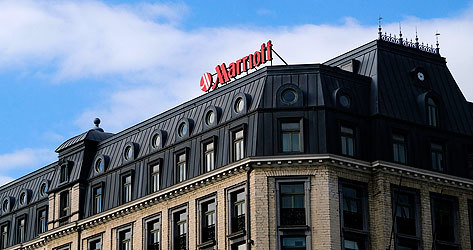Teleworking: the office in a motorhome?
Yes and from 24 euros per day
Trend: Surprise flights for travelers who can't take it anymore on land
What happens if you start to feel
symptoms of Covid
while you are staying in a hotel?
What if you have a
fever
when entering an airport?
What if you have flown for several hours with a person who, upon arrival at the destination,
tests
positive in a
PCR or rapid test
?
Many questions and not always all have an answer.
And depending on the places where you formulate them, they may have one answer or another.
They can even change from today to tomorrow.
The difficult balance between ensuring certain
levels of economic activity
and trying to contain the pandemic in a rapidly changing environment can create certain gaps in useful (and often necessary) information for those who decide to travel.
And there are those who rush the last
bridges
or already make
plans for Christmas
if the outlook improves.
For many, the
Canary Islands are
not an absolute bad idea for a getaway in a second wave that can star the rest of autumn and part of winter.
In fact, the islands have just adopted a measure with all signs of being increasingly implemented: they
request PCR
with a negative result at destination.
BUILD TRUST
The Canary Islands is the
first Spanish autonomous community
to do so and it will come into force on
November 14
for all tourists and travelers, nationals or foreigners, over six years of age who stay in a tourist accommodation on the islands.
As is customary in countries that apply these control measures, the test must be carried out within
72 hours prior
to arrival at the destination.
Tenerife beach during the second wave.
What a few months ago seemed like a dissuasive measure that could limit travel, is now a
measure demanded
by tourist destinations themselves in the absence of demand.
The keyword now is building
trust.
Another measure adopted in recent days by the Canarian government is also aimed at this idea: offering its tourists
travel insurance
whose cost is borne by the Community itself and for which tourists (national, local and foreign) will have travel assistance coverage with guarantees of medical expenses, health repatriation and prolongation of stays due to quarantine related to Covid-19, to comply with an obligatory confinement due to a positive result.
To this end, the island government signed a policy with
AXA Spain.
The
Andalusian Government
plans to adopt a similar measure for 2021, although limited to
foreign tourists.
WHO BEARS WITH THE EXPENSES?
The possibility of being
confined to the destination
, and the expenses that derive from it, is a thorny issue that can set many travelers back when it comes to traveling.
Contracting this type of insurance has, in the current context, all the logic.
Precisely in order not to scare potential customers away, hoteliers do not usually report that if they have to be confined or isolated in the hotel,
the customer must bear the costs
of their stay.
The casuistry, in any case, is very varied.
Facade of the Marriott hotel in Brussels.
As a general rule, hotels have the obligation to notify the competent health authorities that there is a possible case of Covid in the hotel.
And it is the
authority
that has the last word on
where the guest has to spend
the confinement.
The regulations are not very clear in this regard, it varies between cities, communities and countries.
Even for weeks, depending on the health situation of the country in question.
In general, hotels must have
rooms
in low-traffic areas and, if possible, with greater ventilation (availability of terraces or balconies) for possible cases of confinement.
It also has a
room service
protocol
(normally everything will be served in
disposable material
) and one or two people from the staff will always take care of this service.
FEVER AT THE AIRPORT
What happens at an
airport
?
Here too there is disparity, controversy and many gray areas as the
temperature
measurement spreads across airports around the world (now including Spanish ones).
A simple question such as
does having a fever prevent you from flying?
you can find more than one answer.
Among other things, because not all countries recognize the legal validity of this measure, which in many cases is more dissuasive than real.
Traveler with a mask at an international airport.
The
legal loopholes
when it comes to establishing powers cannot be ignored.
Many hotels do not take the temperature of their customers, the case of
Marriott
, for example, partly because of these kinds of issues.
Yes, on the other hand,
Four Seasons does,
as can be seen in its brand-new hotel in Madrid.
The establishment has well designed the entire protocol in case a guest has a fever when registering.
In this sense, it is worth highlighting the initiative of
the Portuguese group Pestana,
which since last October 1 offers all its guests
free insurance with coverage
for any incident caused by Covid-19: from medical expenses to long stays.
Other hotel groups have adopted similar measures in a context where insurers - and laboratories that perform PCR tests - seem to have a lot to gain.
According to the criteria of The Trust Project
Know more
tourism
Spain
Europe
ItalyA tourist returns the archaeological remains she stole in Pompeii after 15 years of "bad luck"
AdventureThe Barranco de la Luna, the Grand Canyon of the Colorado of Granada
RutaGuadix, the region of 2,000 cave houses to confine itself in a troglodyte key
See links of interest
News
Translator
Programming
Films
Topics
2021 business calendar

